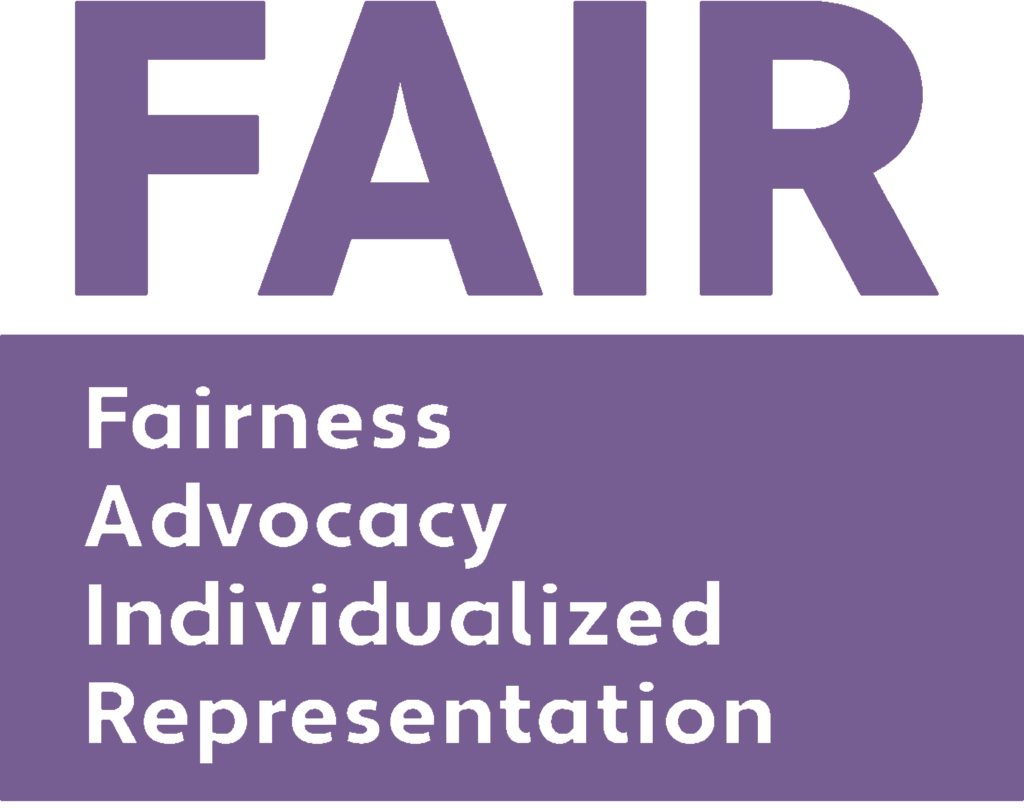FAIR FAQs
Understanding the FAIR Project: Your Questions Answered

At Georgia Appleseed, we improve education outcomes and opportunities for Georgia’s most vulnerable children. Our FAIR (Fairness, Advocacy & Individualized Representation) Project provides crucial legal support and advocacy so that every child can succeed in school. In these FAQs, we answer common questions about the FAIR Project and how it makes a difference in children’s lives.
1. What is the FAIR Project?
Georgia Appleseed’s FAIR Project provides legal services and advocacy to children facing barriers to education. FAIR prepares parents, guardians, caseworkers, attorneys, and other adults to be effective advocates for these children and protect their educational rights.
2. Who benefits from the FAIR Project?
FAIR serves children across Georgia, particularly the most vulnerable and marginalized populations, including Black and Brown children, LGBTQ+ youth, children with disabilities or mental health needs, and children in foster care.
3. How does the FAIR Project help children and families?
Through partnerships with school districts, juvenile courts, the Division of Family and Children Services (DFCS), and community organizations, Georgia Appleseed provides training and legal representation to help children and their advocates navigate the education system. Our trained advocates reduce punitive school measures and secure necessary behavioral and educational supports to keep kids in school and succeed.
4. What kind of free services are offered through FAIR?
The FAIR Project provides a wide range of services to address barriers to education, and provide support for children facing:
- School disciplinary hearings (tribunals) or Manifestation Determination Reviews (MDRs) for disciplinary incidents
- Challenges related to disabilities or special education needs, IEPs
- Enrollment issues
- Housing instability and homelessness (McKinney-Vento).
- Depending on the situation, we offer resources, brief assistance, community advocacy support (CAS), and/or legal representation.
5. What is FAIR Project’s impact?
A third-party evaluation of the FAIR Project shows it saves thousands of school days, improves home placements stability for children in foster care, and increases trauma-informed school supports. FAIR improves access to school-based behavioral health services and creates a more supportive environment for children in need.
6. How can I become involved with the FAIR Project?
Join our community of advocates!
- Complete our online child advocacy training at AppleseedAdvocates.org.
- Request a child advocacy training session for your law firm or organization.
- Join our network of volunteer attorneys, by completing our Pro Bono Interest Form.
- Refer children and families needing advocacy for school matters at DisciplineHelp.org, including enrollment problems, school discipline (suspension and enrollment), special education and disabilities-related matters, among others.
- Connect us with community partners like PTAs/PTOs, after-school programs, and other agencies.
7. What should I do if I know a child faces long-term removal from school?
If you know a child at risk of long-term removal from school, complete our online FAIR referral form at DisciplineHelp.org. We will provide the necessary resources and guidance to support the child.
8. How does the FAIR Project collaborate with other organizations?
FAIR works closely with school districts, juvenile courts, DFCS, and community organizations to provide a comprehensive support network for children facing educational challenges.
9. What training does the FAIR Project provide?
FAIR offers interactive training for guardians, case managers, foster parents, and others working with children. These sessions equip participants with the skills and knowledge needed to advocate effectively for children’s educational rights.
10. What are the future goals of the FAIR Project?
The FAIR Project aims to expand its reach across Georgia, eventually helping every child stay in school and thrive socially and academically. Our long-term vision includes training enough caregivers to reach every child who needs our support, meaningful partnerships with every school district and relevant community organizations, and driving the policy changes that will create an equitable educational system for all children, especially those facing significant barriers like racism and other prejudice and bias, disability, poverty, and foster care. Through these efforts, Georgia will have an education system that provides every child with the education they need to thrive, regardless of their zip code, identity, special needs, or family history.
